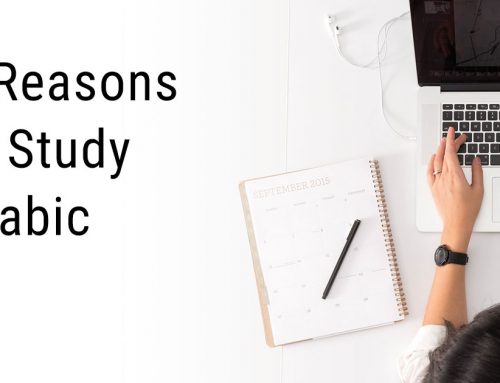Teaching your child multiple languages has many benefits. Children who are multi-lingual have better linguistics, are more creative, have better memories, problem solving and critical thinking skills, perform better academically in school, are more well-rounded and interested in other cultures, and are more likely to make greater contributions to society as adults.
If you’re trying to figure out which language to add to your child’s repertoire, why not try Arabic?
The Benefits of Learning Arabic
Children are not the only ones who benefit from learning Arabic. Teenagers and adults can also benefit as well.
Learning Arabic can open doors to employment and business opportunities, help bring about a greater understanding and appreciation of the Arabic culture, make traveling in Arabic-speaking countries easier and more enjoyable and can pave the way to lifelong friendships with Arabic speaking neighbors.
More and more international companies are conducting business in Arabic-speaking countries. Employees who are fluent in Arabic have a higher potential of getting hired and promoted. With the world events that are taking place, governments are also seeking personnel who are fluent in Arabic to help with translation and to build peaceful relationships with governments in Arab countries.
In communities across the U.S. there is an ever-diversifying population composing more and more of Arabic speakers. Children and those who aren’t professionally driven can find the relationships they build with their Arabic neighbors a good reason to learn Arabic.
Both adults and children can benefit from learning Arabic. The good thing is that no one is too young or too old to learn it.
When Should Children Learn Arabic?
Like any hobby or skill, the earlier you expose your children to the Arabic language, the easier it will be for them to learn and retain it.
Children’s brains develop the fastest within the first five years of life. The first words spoken in their native language are done by the age of two. In preschool, children are taught basic written and spoken language skills.
Unless you’re living in an Arabic-speaking country, Arabic will be your child’s second language. English will be the language children in preschool and early elementary school are taught. Arabic can be taught at home concurrently with English.
Oftentimes, children begin learning Arabic after first learning English.
Arabic, like other languages can be taught to children at a very young age, beginning with the Arabic alphabet. Slowly words can be formed and an ever-expanding vocabulary can be established using a variety of age appropriate resources including games, workbooks, videos, art and flashcards.
Learn Arabic at Any Age
What if you have older kids or if you want to learn Arabic yourself?
The Arab Academy offers both Quranic and Modern Standard Arabic (MSA) to children and adults of all ages and skill levels.
Our courses are completely online so you and your family can learn Arabic at your own pace and on your own schedule. All the courses taught at Arab Academy are taught by native Arabic speakers and include a variety of interactive activities to reinforce learning.
The Arab Academy also boasts of one of the largest online Arabic language resource libraries that students can utilize to enhance, accelerate and solidify their Arabic studies.
If you’re looking for an internationally recognized Arabic learning school for your child or yourself, contact Arab Academy today for more information about our Arabic language courses and let us help you and your child experience the benefits of learning Arabic.





